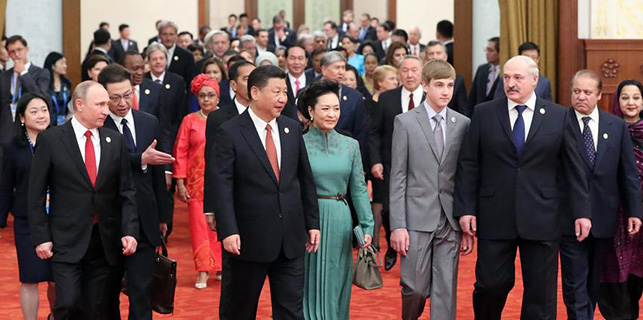Benefits boost to lift childbirth rate
Free IVF among measures to slow Cuba's aging population trend
HAVANA - On the second Sunday in May, Cuba celebrates Mother's Day with unique fervor: phone lines collapse from overload, people scramble to buy flowers before they sell out, and restaurants are packed to the rafters with extended families.
For more than a decade, Kenia Coba, a resident of the central province of Cienfuegos, about 220 kilometers southeast of Havana, dreamed of one day being the center of that attention.
But motherhood was elusive. After several years of trying to get pregnant, Coba and her husband decided to get help from their local fertility clinic.
Doctors said she suffered from polycystic ovary syndrome, an endocrine disorder that leads to the formation of ovarian cysts.
"I underwent surgery and then had several (fertility) treatments, including six artificial inseminations last year that didn't work," Coba said.
"Afterward I was put into a program for in vitro fertilization, in which I finally got an embryo to hatch and it's the baby that fills my life with joy today," Coba said as she held her baby, Marco Antonio, in her arms.
Not only did Cuba's state-run health service help Coba realize her dream of becoming a mother, but it did so free of charge.
Fertility treatments in other countries are often prohibitively expensive, with IVF ranging from $10,000 to $15,000. That may not sound like much, until you consider that most couples don't get pregnant on the first or even second try.
Last year, the population of Cubans aged 60 and over reached 19.6 percent, while the fertility rate registered 1.6 children per woman.
At the same time, official figures showed that in 2016 the Cuban government spent 5.8 billion Cuban pesos ($242 million) in social security payments.
If this trend continues, by 2030, 30 percent of the Cuban population will be 60 and over and the government will have to allocate around 10 billion pesos ($417 million) to social security.
To reverse the trend, Cuban lawmakers approved a set of laws in December to promote childbirth by strengthening maternity rights for women in the public and private sectors.
Haydee Franco, director of policies and projections at the Ministry of Labor and Social Security, said the new legislation expands existing maternity benefits, such as financial incentives received monthly by the parents, and also encourages greater family integration in the area of child care.
If the grandparents are employed state workers who assume the care of the baby, they have the right to be compensated with 60 percent of their average monthly salary.
"This also encourages the mother to go back to work earlier with the simultaneous social benefit of maternity leave and her normal monthly salary. Therefore, this will lead to a greater income for Cuban families," Franco said.
Xinhua
















